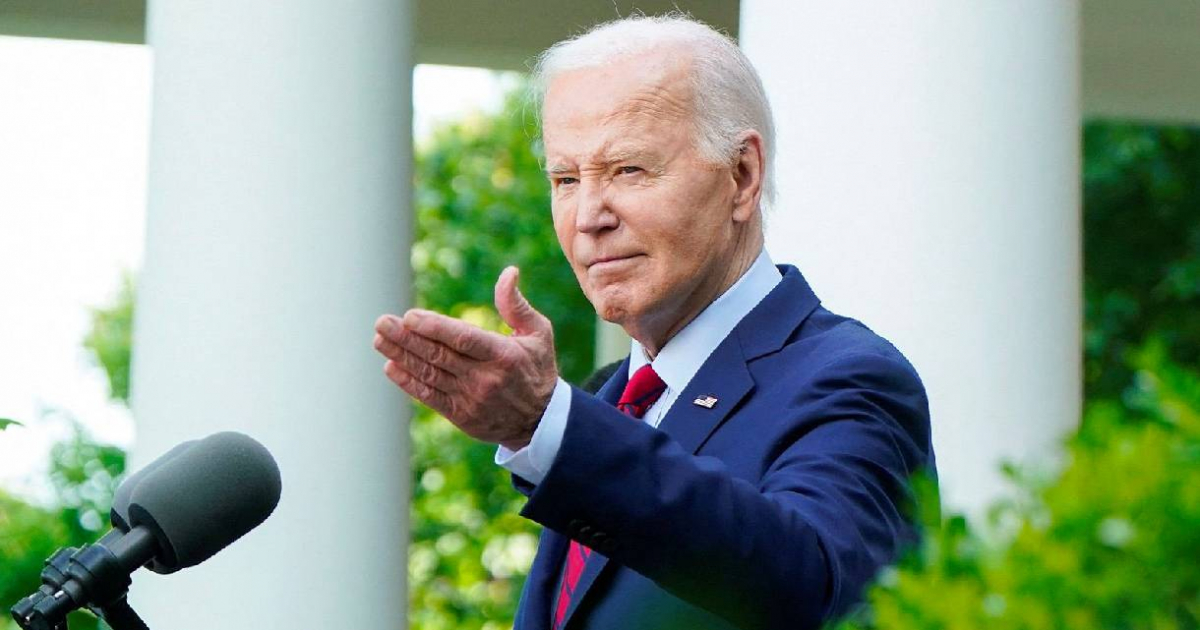President Joe Biden of the United States took a decisive step in trade policy with China on Tuesday by announcing the imposition of new tariffs worth $18 billion on imports from that country. These tariffs will impact several sectors that the White House considers "crucial for the economic future and national security of the United States," including steel, aluminum, semiconductors, batteries, solar panels, ship unloading cranes, and medical products. The most drastic increase affects electric vehicles, with a tariff hike from 25% to 100% over the course of this year.
"I've just imposed a series of tariffs on products made in China: 25% on steel and aluminum, 50% on semiconductors, 100% on electric vehicles, and 50% on solar panels. China is determined to dominate these industries. I am determined to ensure that the United States leads the world in them," Biden stated on his X account.
This measure responds to the significant rise in exports of electric vehicles from China to the United States, a 70% increase between 2022 and 2023, which is perceived as a threat to the development of the domestic electric vehicle market in the U.S., the president indicated.
One of Biden's goals is for up to two-thirds of new cars sold in the United States to be electric by 2032, and to achieve this, programs have been launched to encourage domestic production of these vehicles.
In addition to the increase in tariffs on electric vehicles, a rise in tariffs on the batteries used in these vehicles, as well as other critical minerals and medical products, is expected. This rise in duties aims to foster domestic production and reduce dependence on China in these strategic sectors, the information notes.
The announcement of these tariffs comes at a crucial moment, amid the campaign for the November 5 elections. Biden, who is seeking re-election, has adopted a tougher stance towards China while maintaining an open dialogue with Beijing.
This measure by Biden seeks to garner support from the American working class and distance them from former President Donald Trump, who is emerging as a future Republican candidate and who also implemented aggressive trade policies towards China during his tenure, EFE agency recalled. In 2019, Trump regretted not having raised tariffs on China more, having imposed only 5%, which he later suspended after an agreement with the Asian country.
The White House emphasized that Biden's measure has been taken consistently, as these tariffs are specifically targeted at sectors where investments have been made and are not comparable to the "indiscriminate tariffs" imposed during the Trump administration, which triggered a trade war with negative consequences for global growth.
Understanding Biden's New Tariffs on Chinese Products
In light of President Biden's recent announcement of new tariffs on Chinese products, many questions have arisen regarding the implications and future outcomes of this policy. Here are some key questions and answers to help clarify the situation.
What sectors are affected by the new tariffs?
The new tariffs impact several sectors including steel, aluminum, semiconductors, batteries, solar panels, ship unloading cranes, and medical products.
Why has Biden imposed these tariffs?
Biden imposed these tariffs to protect and boost the U.S. economy and national security, especially in sectors that are crucial for the future. The tariffs are also intended to counter the significant increase in Chinese exports of electric vehicles to the U.S.
How will the tariffs impact the electric vehicle market in the U.S.?
The tariffs aim to reduce the influx of Chinese electric vehicles, thereby encouraging domestic production. This is aligned with Biden’s goal for two-thirds of new cars sold in the U.S. to be electric by 2032.
